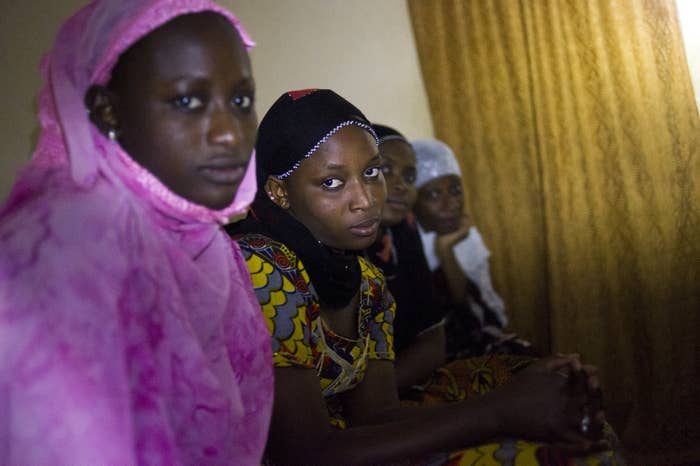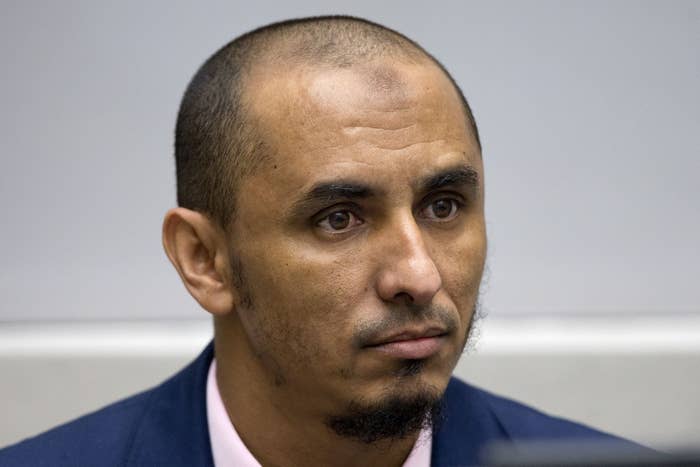
The International Criminal Court is charging a militant linked to al-Qaeda in the Maghreb (AQIM) with gender-based persecution, which if upheld will be the first time that the court considers persecution on the basis of gender as a crime.
Al Hassan Ag Abdoul Aziz Ag Mohamed Ag Mahmoud is being held at the Hague on charges of crimes against humanity on the basis of gender and religion, and war crimes including rape, sexual slavery, and torture during the takeover of Timbuktu by Islamic militants in 2012.
The ICC alleges that Al Hassan was the de facto chief of the Islamic police after the takeover of one of the world’s oldest cities and that he participated in the policy of forced marriages, which led to the repeated rape and sexual enslavement of women and girls in Timbuktu and the surrounding region.
ICC Prosecutor Fatou Bensouda said in a statement that the charges “can address the untold suffering inflicted upon the Malian population and what they hold dear as a people,” and emphasized that her office is committed to bringing charges “built on a strong evidentiary foundation.”
Feminist legal activists and others vigorously advocated for the inclusion of gender-based crimes in the statute that governs the ICC, in part as a response to mass rapes in Rwanda and Bosnia. But since the court was first established in 2002, it has yet to try a case where gender-based persecution was successfully prosecuted. Only one previous case has sought to bring charges of gender-based persecution, but the charges were dropped before reaching trial.

As a potential first of its kind, Al Hassan’s case could have a profound impact on international law. It would affirm the legal concept of gender-based persecution and give the court the opportunity to clarify what it even means by terms like “gender,” which remain the subject of substantial debate. (It’s unclear, for example, whether the law draws a distinction between biological sex and gender.) In Al Hassan’s case, legal scholar Rosemary Grey argues in a blog post that the court should take a broad view and examine “what it meant to be female in social terms, for women living under the rule of Ansar Dine and AQIM.”
Al Hassan, 40, was born outside of Timbuktu and is a member of the Tuareg ethnic group. His arrest warrant states that he joined the Islamist militant group Ansar Dine in spring 2012. Ansar Dine was a local affiliate of al-Qaeda that worked closely with AQIM and joined Tuareg rebels to launch an attack on Timbuktu in April 2012. The coalition had total control of Timbuktu, setting up Islamic courts and other functions, until January 2013, when French troops intervened and the militants fled.
“Stonings, amputations, and floggings have become the order of the day in an apparent attempt to force the local population to accept their worldview,” Corinne Dufka, a senior researcher on Africa at Human Rights Watch, said in 2012, describing the situation at the time. “In imposing their brand of Sharia law, they have also meted out a tragically cruel parody of justice and recruited and armed children as young as 12.”
In addition to gender-based crimes, Al Hassan is also facing a number of other charges including religious persecution, torture, and outrages upon personal dignity. For the religious-based charges, the court has alleged that he participated in the destruction of the mausoleums of Muslim saints.
Andrew Lebovich, an expert on Islamic movements in the Sahel, told BuzzFeed News that Al Hassan was a member of the city’s Islamic police but “by most local accounts does not appear to have been as senior as he has been depicted.” Lebovich noted that “more senior members of Ansar Dine are free and some are part of groups associated with Mali’s peace process.”
Al Hassan was transferred to the ICC by Malian authorities on March 31 and had his first court appearance on April 4 when Judge Marc Perrin de Brichambaut read the charges to him. The confirmation process for those charges is set to begin in September and will determine whether there is sufficient evidence to proceed with a trial.
